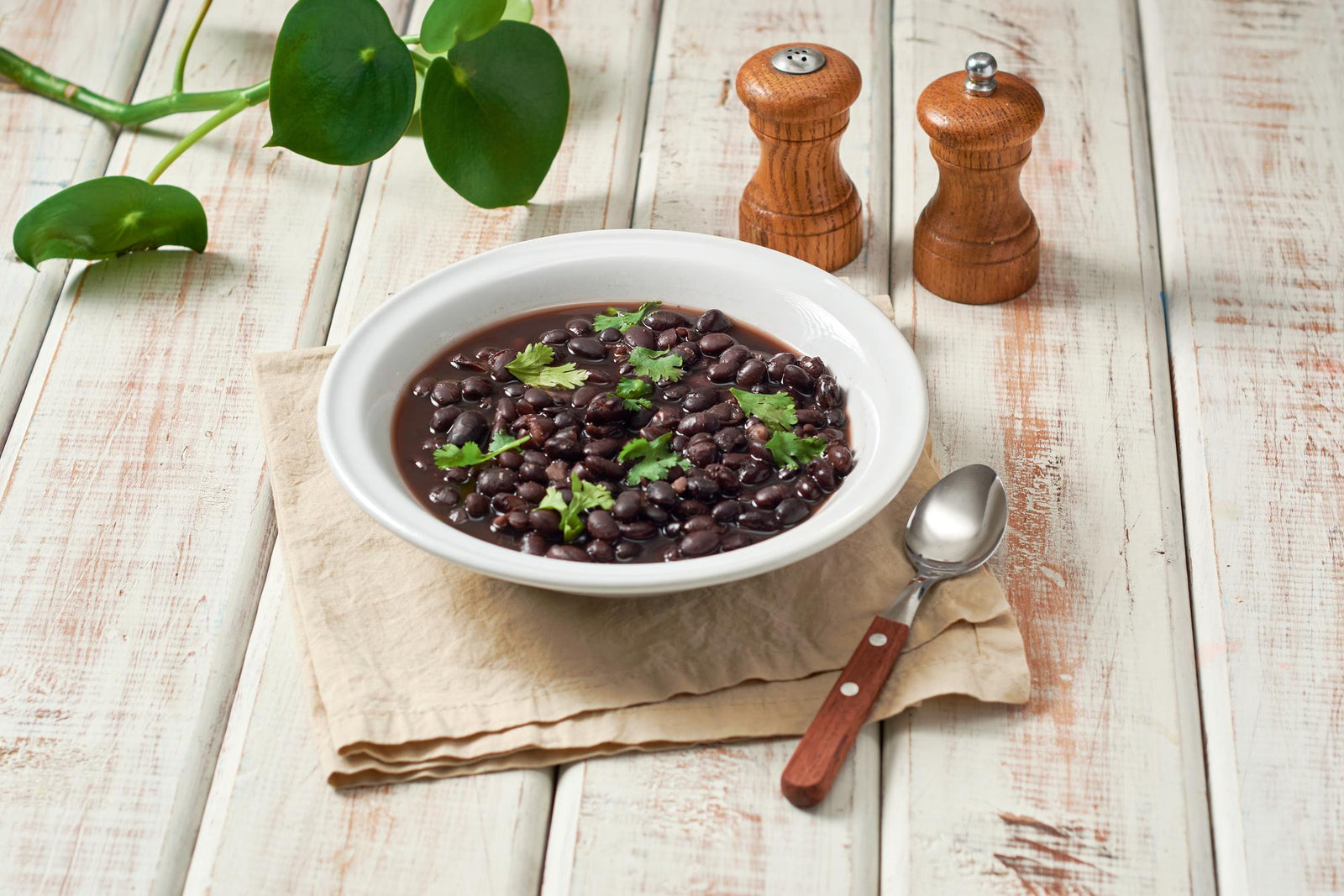
February 14, 2024 2 min read
In the quest for a protein-packed diet that aligns with health and sustainability goals, look no further than the unassuming yet powerful black bean. Bursting with nutrients, these legumes offer a meat-free solution that combines deliciousness with versatility. In this article, we'll uncover the nutritional benefits of black beans, explore their culinary adaptability, and understand why they deserve a prominent place in your journey toward a healthier, more sustainable lifestyle.
Black beans are a nutritional powerhouse, providing an excellent source of protein, fiber, vitamins, and minerals. With a single cup delivering a substantial amount of protein, they stand out as a valuable meat alternative, especially for those embracing a vegetarian or vegan lifestyle.
Protein is a crucial component for muscle repair, immune function, and overall well-being. Black beans offer a high protein content with a well-balanced amino acid profile, making them an ideal addition to your diet for building and repairing tissues.

Beyond protein, black beans are rich in dietary fiber, promoting digestive health, regulating blood sugar levels, and aiding in weight management. Incorporating black beans into your meals enhances digestive well-being and contributes to a more balanced diet.
Packed with essential nutrients such as folate, iron, magnesium, and potassium, black beans play a vital role in supporting heart health, preventing anemia, and promoting overall vitality. Their nutritional richness extends beyond protein, providing a holistic boost to your well-being.
Black beans shine in the kitchen with their adaptability to various culinary styles. From salads to soups, dips to main courses, black beans bring a delightful texture and flavor to a wide range of dishes.
Choosing black beans as a protein source aligns with sustainability goals. Their cultivation generally requires fewer resources and contributes to lower greenhouse gas emissions compared to animal-based protein sources. Embracing black beans in your diet is a conscious choice that supports a more sustainable and compassionate food culture.
In conclusion, black beans emerge as a delicious and nutritious meat-free solution, offering a perfect balance of protein, fiber, vitamins, and minerals. Their culinary adaptability and positive impact on personal health and the planet make them a standout choice for those seeking a healthier and more sustainable lifestyle. So, embrace the protein-packed goodness of black beans and elevate your meals to new heights on your journey toward a conscious and wholesome way of living.

❤ Try our USDA certified organic Black Turtle Beans ❤
Yummy Black Turtle Bean Recipes
Related Blogs:
Comments will be approved before showing up.

January 27, 2025 3 min read
Flaxseed, the tiny yet powerful superfood, is packed with nutrients that can support weight loss. From curbing hunger to stabilizing blood sugar, this guide dives into the science of how flaxseed can help you shed those extra pounds.

December 11, 2024 3 min read
Discover three quick and easy soup recipes featuring organic small red beans. From a classic vegetable soup to a creamy potato blend, these wholesome recipes are perfect for chilly days and busy weeknights. Packed with flavor and nutrition, these soups will warm your heart and soul this winter!

December 06, 2024 3 min read
This vibrant and nutritious Green Lentil Salad combines tender lentils with grilled chicken, fresh vegetables, and a zesty lemon dressing. Packed with protein, fiber, and essential vitamins, it’s the perfect healthy meal for any time of day.
© 2026 Be Still Farms- Real, Fine Organics.
Privacy | Terms | Refund Policy | Organic Certification
